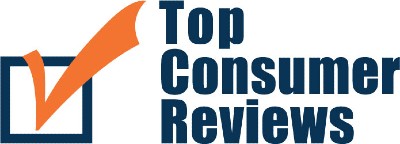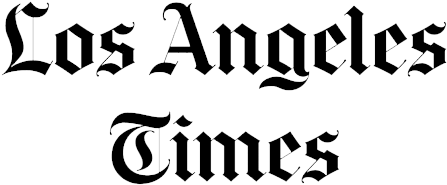Muscle Anatomy Diagram and Functions: Learn the Muscular System of the Human Body
Learn about the human body's muscular system by studying the muscle anatomy diagram and functions below.
The muscles of the human body that operate the skeletal system are under voluntary control, and are responsible for movement, balance and posture. Human muscle, like the muscles of other species, is typically classified as striated (or skeletal) muscle, smooth muscle, and cardiac muscle.
This page is about the human skeletal muscles, with a focus on muscular movements, the muscular groups and how they work. The parts that follow give a fundamental framework for understanding gross human muscular anatomy, including explanations of the major muscle groups and their functions. The numerous muscle groups work together to regulate the motions of the human body.
For images of the muscle, click on each link under location.
| Muscle | Origin | Insertion | Function | Location |
| Abductors (tensor fasciae latae, gluteus medius, gluteus minimus) | Ilium | Femur | Brings hip away from body. | Upper leg- rear of human upper leg |
| Adductors (includes adductor longus, adductor brevis, adductor magnus muscles | Pubis | Femur | Brings leg back to and across body. | Upper leg- rear of human upper leg |
| Biceps brachii | Scapula | Radius and ulna | Flexes elbow and moves forearm. | Arm- front view of human arm |
| Brachialis | Humerus and septa | Coronoid process and ulna | Flexes elbow. | Arm- front view of human arm |
| Brachioradialis | Humerus and septum | Radius | Flexes and rotates the elbow. | Arm- front view of human arm |
| Deltoid | Clavicle, deltoid tuberosity, acromion and scapula | Deltoid tuberosity (humerus) | Raises and rotates arms in all directions. | Arm- front view of human arm |
| Erector spinae | Sacrum and ilium | Upper thoracic vertebrae | Extends spine and trunk back. | Body- rear view of human body |
| Gastrocnemius (calf muscle) | Femur Lower leg - back | Calcaneum (by Achilles tendon) | Raises heel when leg is straight. | Lower leg- rear of human lower leg  |
| Gluteus maximus | Ilium | Femur | Moves hips forward. | Upper leg- rear of human upper leg  |
| Hamstrings (made of 3 muscles): 1. Biceps femoris 2. Semitendinosus 3.Semimembranosus |
1. Ischium 2. Ischium 3. Ischium |
1. Fibula and femur 2. Tibia 3. Tibia |
1. Bends knee. 2. Bends knee. 3. Bends knee. |
Upper leg- rear of human upper leg  |
| Iliopsoas | Ilium, sacrum, thoracic and lumbar vertebrae | Femur | Moves hips backwards. | Upper leg- front of human upper leg |
| Latissimus dorsi | Lower thoracic, lumbar vertebrae and sacrum | Humerus | Brings shoulders and arms back to body. | Body- rear view of human body |
| Pectoralis major and minor | Sternum | Humerus | Moves humerus (arm) to chest. | Body- front view of human body  |
| Quadriceps (made of 4 muscles): 1. Rectus femoris 2. Vastus lateralis 3. Vastus medialis 4. Vastus intermedius |
1. Ilium 2. Femur 3. Femur 4. Femur |
1. Tibia (patella tendon) 2. Tibia (patella tendon) 3. Tibia (patella tendon) 4. Tibia (patella tendon) |
1. Extends leg out. 2. Extends knee. 3. Extends knee. 4. Extends knee. |
Upper Leg - front of human upper leg  |
| Rectus abdominis | Costal cartilages, medial inferior costal | Margin and xiphoid | Brings trunk forward, and aids expiration. | Body- front view of human body  |
| Rhomboids | Upper thoracic vertebrae | Scapula | Pulls back scapula (shoulder blades). | Body- rear view of human body  |
| Soleus (calf muscles) | Tibia and fibula | Calcaneum (by Achilles tendon) | Raises heel when leg is bent. | Lower leg- front of human lower leg  |
| Tibialis anterior | Tibia | Metatarsal # 1 (big toe) | Raises front of foot. | Lower leg- rear of human lower leg |
| Trapezius | Starts at the base of the skull. Ends at last thoracic vertebra. | Scapula and clavicle elevation. | Elevates and lowers pectoral girdle. Also, moves the scapula towards the spine. | Body- rear view of human body |
| Triceps | Brachi, scapula and Humerus | Olecranon process (elbow) | Extends forearm. | Arm- rear view of human arm |
Muscles of Hamstring and Back of the Leg (hamstring, gastrocnemius, gluteus maximus)

Muscles of the Upper Limb (Deltoid, Biceps, Forearms)

Muscles of Back (Trapezius, Latissimus Dorsi)

Muscles of Calf

Muscles of the Hip & Thigh (quadriceps, hips)

Muscles in the Human Body (Pectoralis Major, Abdominals, Obliques)

Muscles of Lower Leg (calf, soleus)

Muscles in the Arm (triceps, rear deltoid)

The Best Meal Plan App
Using the latest science and research, the team at changingshape.com offer plans developed by certified nutrition and fitness professionals that shape exercise and meal plans based on the specific calories and nutrients a body needs to achieve real results. Join the changingshape.com calorie counter app free today.




